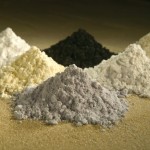India's much awaited Trade and Economic Partnership Agreement (TEPA) with the European Free Trade Association (EFTA) takes effect today (October 1st, 2025). This pact will reduce import duties over the coming years on goods from Switzerland, Norway, Iceland, and Liechtenstein — particularly watches, chocolates, apparel, clocks, and more.
Tariff Changes Under TEPA
Tariff Changes |
|
Exceptions |
|
Timeline |
|
Investment Commitments | EFTA has committed to investing USD 100 billion into India over the next 15 years, in many service sub-sectors: e.g. legal, audiovisual, R&D, etc |
TEPA includes provisions for rules of origin, trade facilitation, intellectual property, environmental & labor clauses.
Benefits for Indian Exporters
While consumers in India may enjoy lower prices on imported EFTA goods over time, Indian exporters become big winners. Indian-origin textiles, marine goods, leather, gems & jewellery, engineering goods, and processed foods will gain easier access into EFTA markets. As this comes in the wake of losses due to US tariff increases, this will provide some relief to Indian manufacturers.
Risk, Challenges & Safeguards
- Duty reductions will be gradual, not instant, for many categories.
- Excluded and sensitive sectors remain off-limits to completely free trade.
- Meeting rules of origin, customs procedures, and sanitary standards will be critical for Indian exporters, as European standards are often higher and more strictly enforced.
- Indian exporters will therefore need to upgrade compliance capacity, and supply chains to fully capitalize on the new opportunity.
Keywords: India EFTA FTA, Swiss watch import duties India, India EFTA tariff reduction, India trade pact with EFTA, Swiss chocolates duty cut, Indian export market access EFTA, TEPA India EFTA, duty elimination schedule India, Indian services sector trade EFTA, Indian exporters Europe access








